Farmers from Graam Dishaa Jaivik Samuh, an initiative supported by Graam Dishaa Trust were present there to showcase the traditional varieties of seeds that they have preserved over the years.
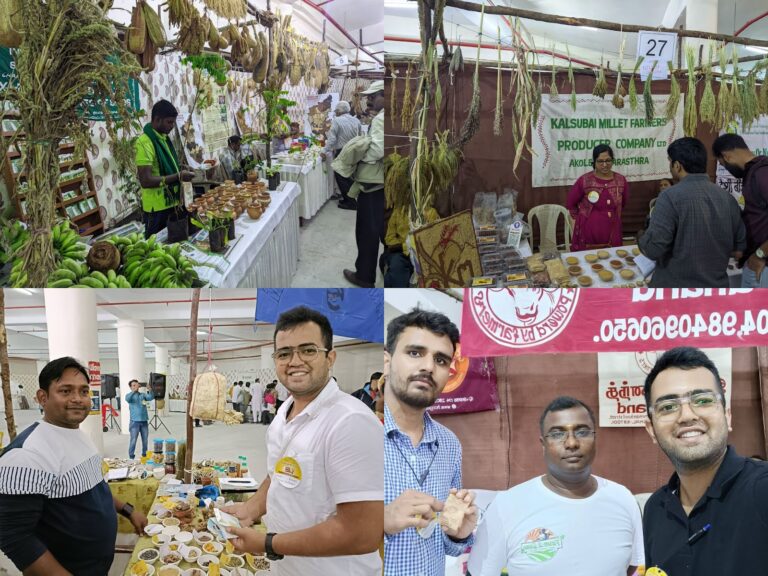
KISAAN SWARAJ SAMMELAN MYSURU 2022, WITH GRAAM DISHAA JAIVIK SAMUH
A detailed document of our experience is shared below.
Kisan Swaraj Sammelan 2022
(Organised By: Karnataka State Open University, Mysuru)
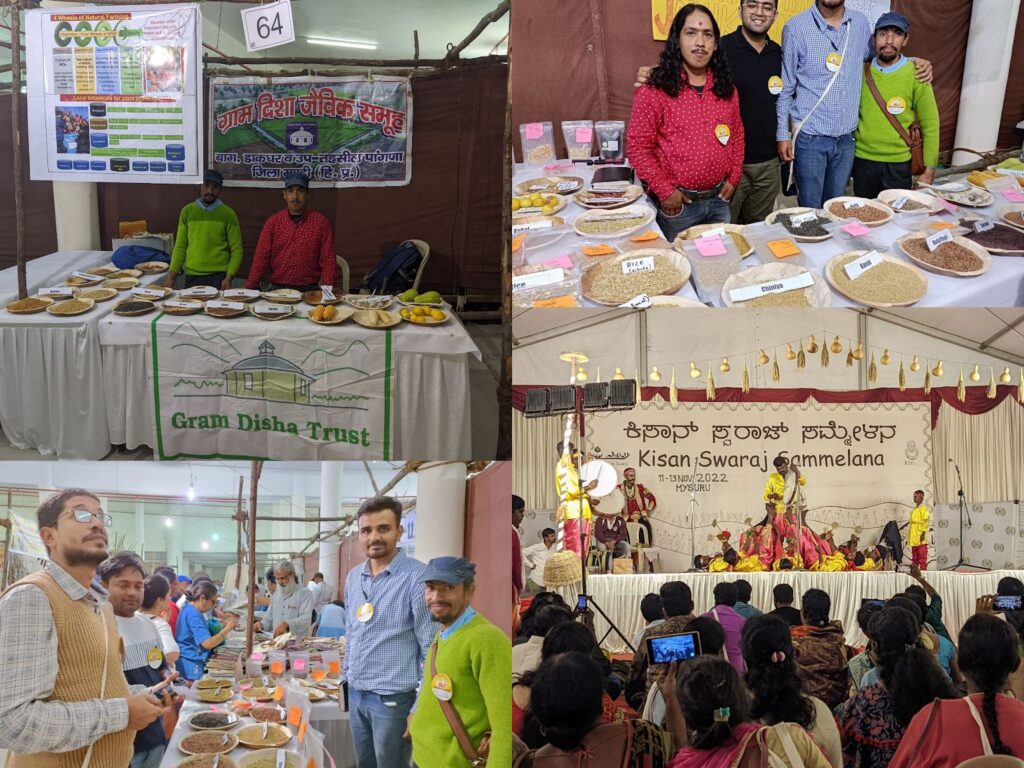
Event Report
Name of Institution: Gram Disha Trust
Submitted by: Ajay Kumar and Ankit Bhandari
Graam Dishaa Trust is a charitable trust created to assist the cause of Agroecology and smallholders across india. As apart its initiative there’s group called Graam Dishaa Jaivik Samuh is formed in village Baag, District Mandi Himachal pradesh to improve Livelihood of smallholders and promote sustainable agriculture. Graam Dishaa Jaivik Samuh has been practising organic farming since 2013 and since 2018 have been practising natural farming. Since the very beginning of its inception, GDJS have been preserving and multiplying the local seed varieties. This was the first instance that the farmers of GDJS were able to demonstrate their hard work in preserving local seeds to a national audience in Kisan Swaraj Sammelan.
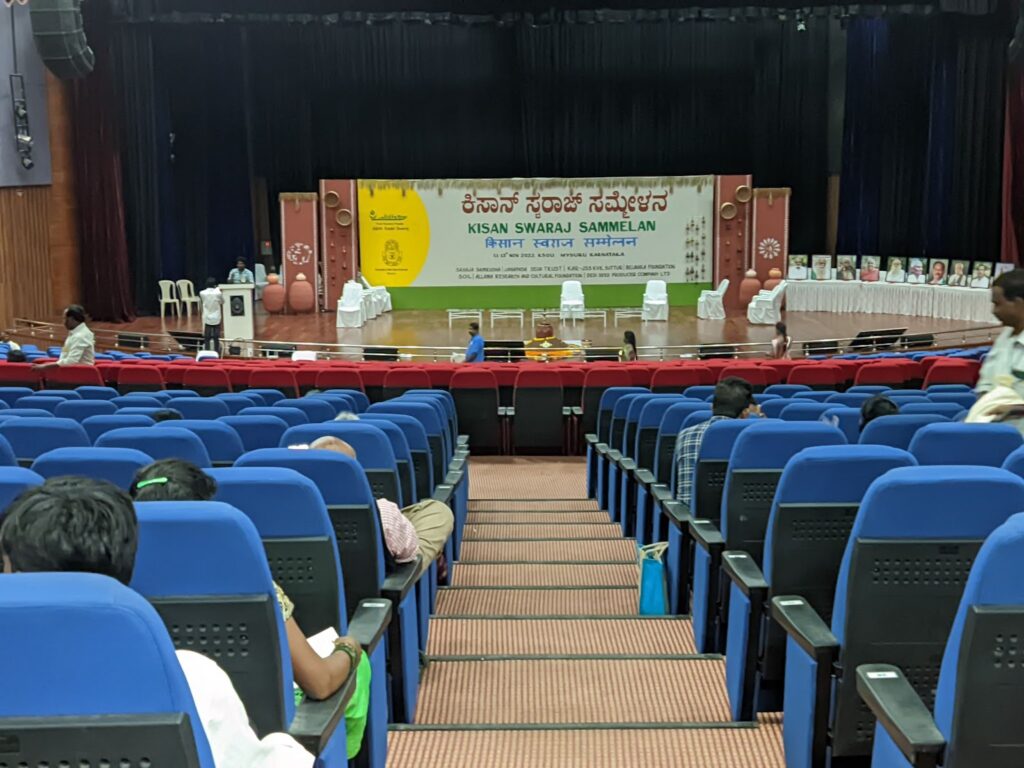
Kisan Swaraj Sammelan 2022 was to celebrate farmer-empowering sustainable, equitable & viable alternatives in Indian farming. It was a re-union opportunity for those working in this sector, and a time for sharing and learning from each other. The sammelan was attended by over 2,000 farmers, tribal seed savers, community organisers, field workers, policy makers, scientists, activists among others. The focus of the Sammelan is to promote traditional varieties of millets, fruits and paddy and also bring the limelight on crops that are not water intensive.
Our team that consisted two farmers (Gopal Gautam and Bhupender Kumar) and two volunteer facilitaters started their journey on 8th November from Himachal and reached Mysuru on 11th November.
Seed Demostration:
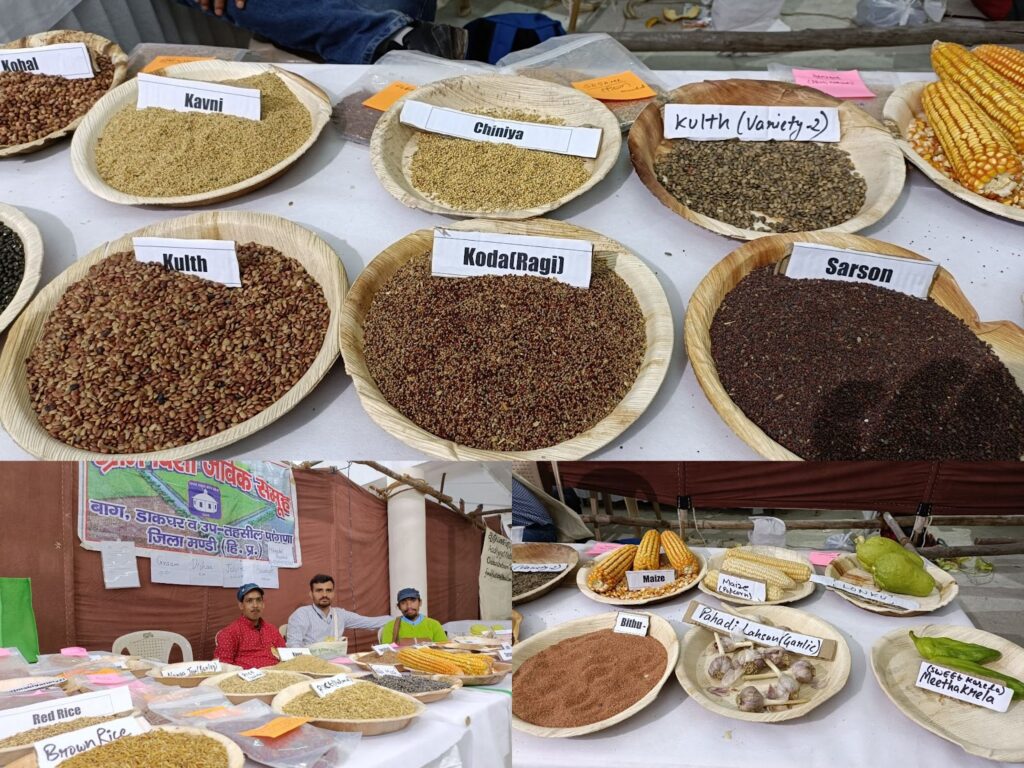
Although the aim was to give exposure to the farmers but the trustees of GDT suggested to set up a seed stall and display our traditional seeds that GDJS has saved over the years. We displayed 23 different varieties of seeds including millets, vegetables, pulses, tubers, cereals and psudo-cereals. Instersingly most our seeds belongs to traditional varieties, so most of the visitors around the samelan was really curious about out seeds. Some of farmers took our contact details as well to get seed. It was really an exposure for our farmers as well as for us.
Others States and their farmers in KSS:
There were farmers and farmer organizations from all across India including Karnataka, Maharashtra, Rajasthan, Gujrat, Uttar Pradesh, Bihar, Uttarakhand among many others. The main focus is exchange and conservation of traditioanl seeds. The seeds brought by the farmers representend their heritage that they are trying to preserve.
Food was one of the main component that really displayed the diversity of this event. There were 9 stalls of different states that served a three time meal from different states in which each participants got different coupons of different state food stalls for each, hence we were able to experience meals from all across the nation.

Interaction with Farmers and other stakeholders:
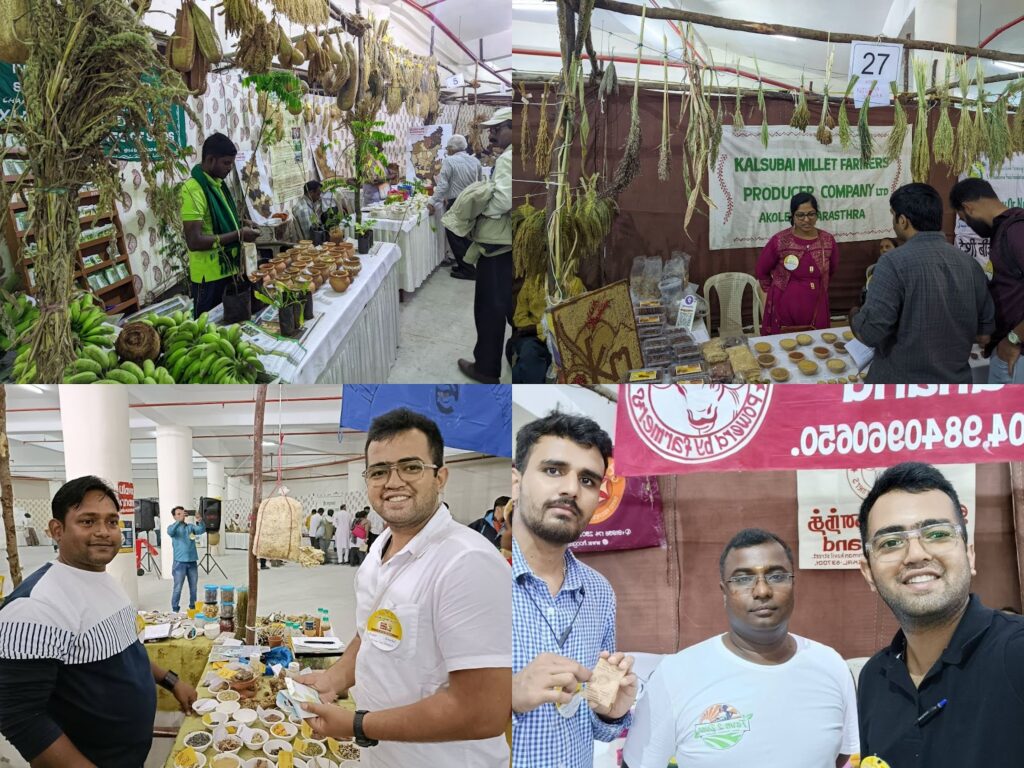
Our stall was visited by various group of people such as localities, farmers, traders and other participents. It was quite intresting to see stalls which had so many diverse set of things to offer. Some stalls were there to sell seeds others were just exchanging it, some were selling the raw produce others were more focused on the value added products.
We had the opportunity to exchange seeds with Sahodya Samudae from Bihar, Basudha from Bengal and other oganizations from Madhya Pradesh, Maharashtra, Karnataka and Tamil Nadu.
Moreover, we also had intraction with traders and buyers from across India that are intrested in buying produce from Himachal grown organically or via natural farming.
Learnings and Observation:
It was decided early in the planning stage of this event that we would not be selling seeds and the decision was taken due to the limited availabity of seeds we had with us. Hence, we believe that we should try to increase our seed bank so that insted of just displaying we are capable of selling seed in any such upcoming events. There is a huge market of non GMO seeds that haven’t been fully explored and a conscious conversion to non GMO produce have been observed both at consumers and buyers end. A small market for value added products such as pickles, ghee and even handloom items also exists in these kind of events which can be explored in the future.
